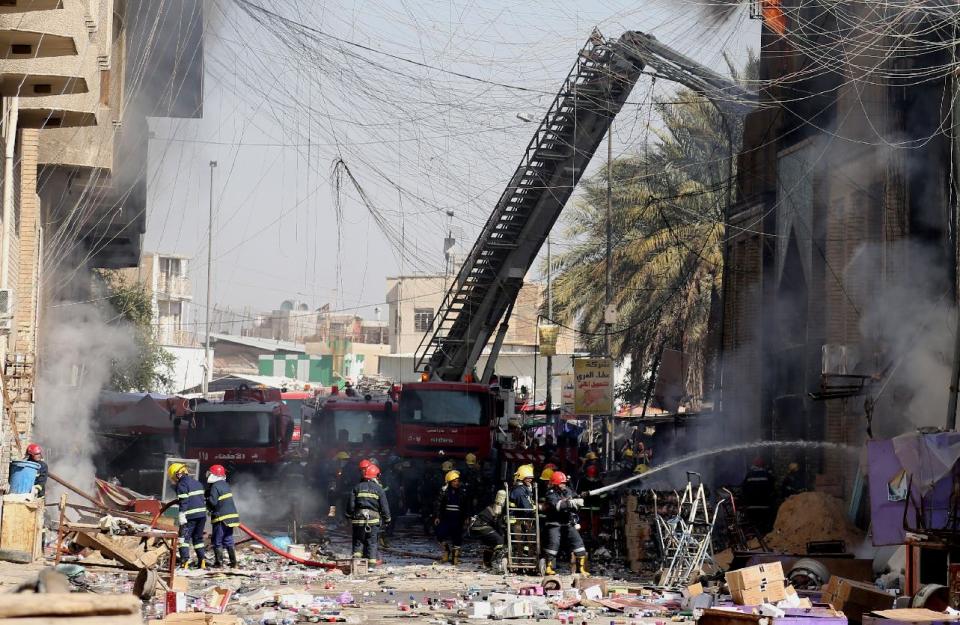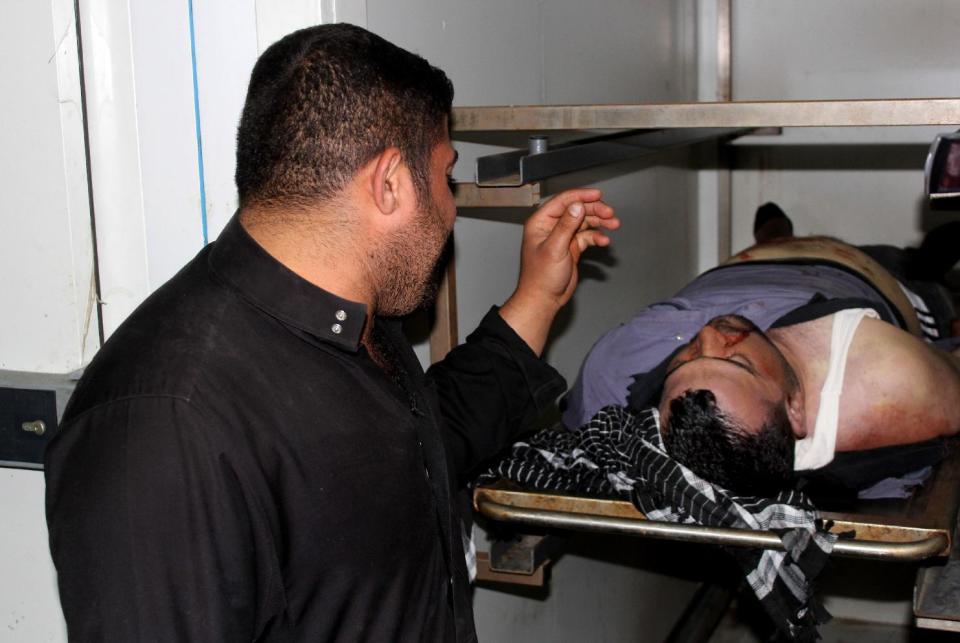Sunni militants overtake part of Iraqi town
BAGHDAD (AP) — Sunni insurgents affiliated with an al-Qaida local franchise took over part of a town in northern Iraq on Thursday, compounding the challenge facing the Shiite-led government as it battles for control of a volatile province west of Baghdad.
Armed with medium and light weapons, the militants first attacked military positions in the town of Sulaiman Bek late afternoon, then they seized control of several streets and deployed snipers on the roofs of some buildings, local official Talib Mohammed Mustafa told the Associated Press.
Mustafa said the town hall and police station are still under the control of security forces who immediately sealed off the town and engaged the militants. He added that sporadic clashes caused casualties among civilians, but he didn't provide a breakdown.
The town, 110 kilometers (70 miles) north of Baghdad, has been the scene of fierce clashes last year between security forces and militants who held it completely for days.
The latest foray by the militants comes as the government has been fighting for control of areas in Anbar province since late December, and as the violence has spilled over to other mainly Sunni areas elsewhere in the country.
Residents of the besieged city of Fallujah, which is occupied by al-Qaida-linked militants and other Sunni insurgent groups, said artillery shelling had intensified since last night in a number of the city's neighborhoods. Troops and allied Sunni tribal militias are also trying to drive militants out of parts of nearby Ramadi city, the provincial capital of the western Anbar province.
Some of the shells hit Fallujah's general hospital, according to its director Wissam al-Essawi. He said that employees would leave the hospital if it is bombed again.
The residents spoke on condition of anonymity for security reasons.
On Thursday, the United Nations said it is concerned over the plight of civilians caught up in fighting in Fallujah, 40 miles (65 kilometers) west of Baghdad.
"I am particularly concerned about the rapidly deteriorating conditions in Fallujah where many residents are caught up in the fighting," U.N. mission chief Nickolay Mladenov said in the statement. "The UN continues to urge for humanitarian access to the city," he added.
The government justified the shelling as targeting gunmen holed up inside houses and government buildings.
In his weekly televised speech on Wednesday, Iraqi Prime Minister Nouri al-Maliki said security forces were instructed to differentiate between areas crowded with civilians and those under the control of the militants. But some neighborhoods had turned into "military industrialization" areas, he said.
"Houses, hospitals, schools and other properties are all respected areas, but as we stated before, any house or government building from which a bullet is fired at civilians or the military will be considered a target," al-Maliki said.
Earlier Thursday, two bombs, hidden in clothing stalls in the capital's al-Arabi wholesale market, went off simultaneously, killing six civilians and wounding 18 others, a police and medical official said on condition of anonymity as they were not authorized to brief journalists. Public places such as cafes, restaurants, mosques and markets are favorite targets for militants in Iraq seeking to undermine the Shiite led-government's efforts to maintain security nationwide.
Iraq is undergoing a surge in violence unseen since 2008 that has become the Shiite-led government's most serious challenge. Violence has spiked since last April, when security forces cracked down on a Sunni protest camp north of Baghdad in clashes that left 45 dead. According to the U.N., 8,868 people were killed in Iraq last year — the country's highest death toll since a peak of sectarian bloodletting in 2007.







